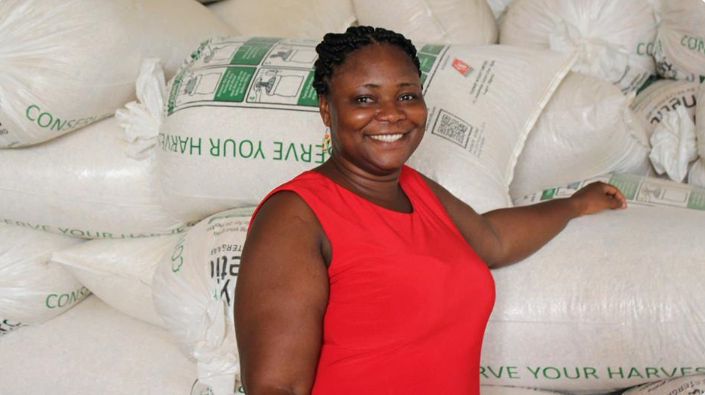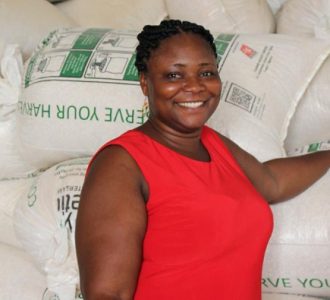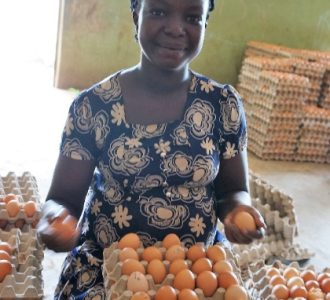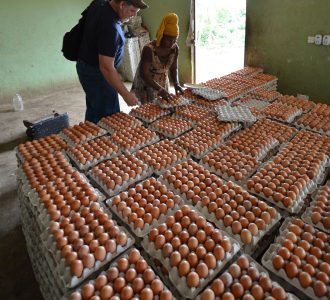Poultry
Increased Efficiency in the Poultry Sector Improves Ghanaian Food Security

Ghana was named the fastest growing economy in the world in 2019; however, the lack of efficiencies in the poultry value chain has inhibited sector growth and protein production. Poultry and egg producers in the West African country struggle with the cost of production and access to quality feed, while also fighting misconceptions related to their products.
WISHH’s AMPLIFIES (Assisting the Management of Poultry and Layer Industries with Feed Improvements and Efficiency Strategies) Project, funded by USDA’s Food for Progress Program, aims to improve the quality of poultry feed and its accessibility to poultry producers. The five-year program, in partnership with ACDI-VOCA’s Ghana Poultry Project, strengthens market connections for locally produced commodities used in feed and poultry production, while also improving the quality of the feed and meeting Ghana’s protein needs through increased egg consumption.
AMPLIFIES’ work, a partnership between WISHH, the Adventist Development and Relief Agency (ADRA) and Kansas State University, focuses on a localized approach to the market. Feed mills as well as crop and poultry producers are trained how to properly store grain and recognize how quality grains positively affect their bottom lines. Through research-based feed demonstrations poultry farmers learn that feeding to the genetics of their birds can decrease their production costs while simultaneously increasing the health of their flock. Ghanaian poultry farmers see the benefits of using soy as the feed’s primary protein source through feed demonstrations conducted by the project. The project also brings together associations throughout the value chain to better coordinate efforts and find local solutions to increase the efficiency of the sector.
Throughout the life of the project WISHH has grown the poultry sector’s production capacity, trained thousands of industry professionals on best management practices, helped producers and processors apply new post-harvest storage techniques to their existing operations and connected supply chain partners to financial institutions. The project’s National Egg Campaign partnered with agriculture, health and education officials to promote the health benefits of eggs to consumers. Through the campaign’s efforts, egg producers have consistent buyers, receive higher prices for their eggs and Ghanaians are now consuming an estimated 128 eggs per capita.
WISHH will continue to work with driven leaders and supply chain partners in Ghana to build networks, improve production capacity and ultimately drive growth in the poultry sector positioning U.S. soy as a reliable protein partner for the future.




